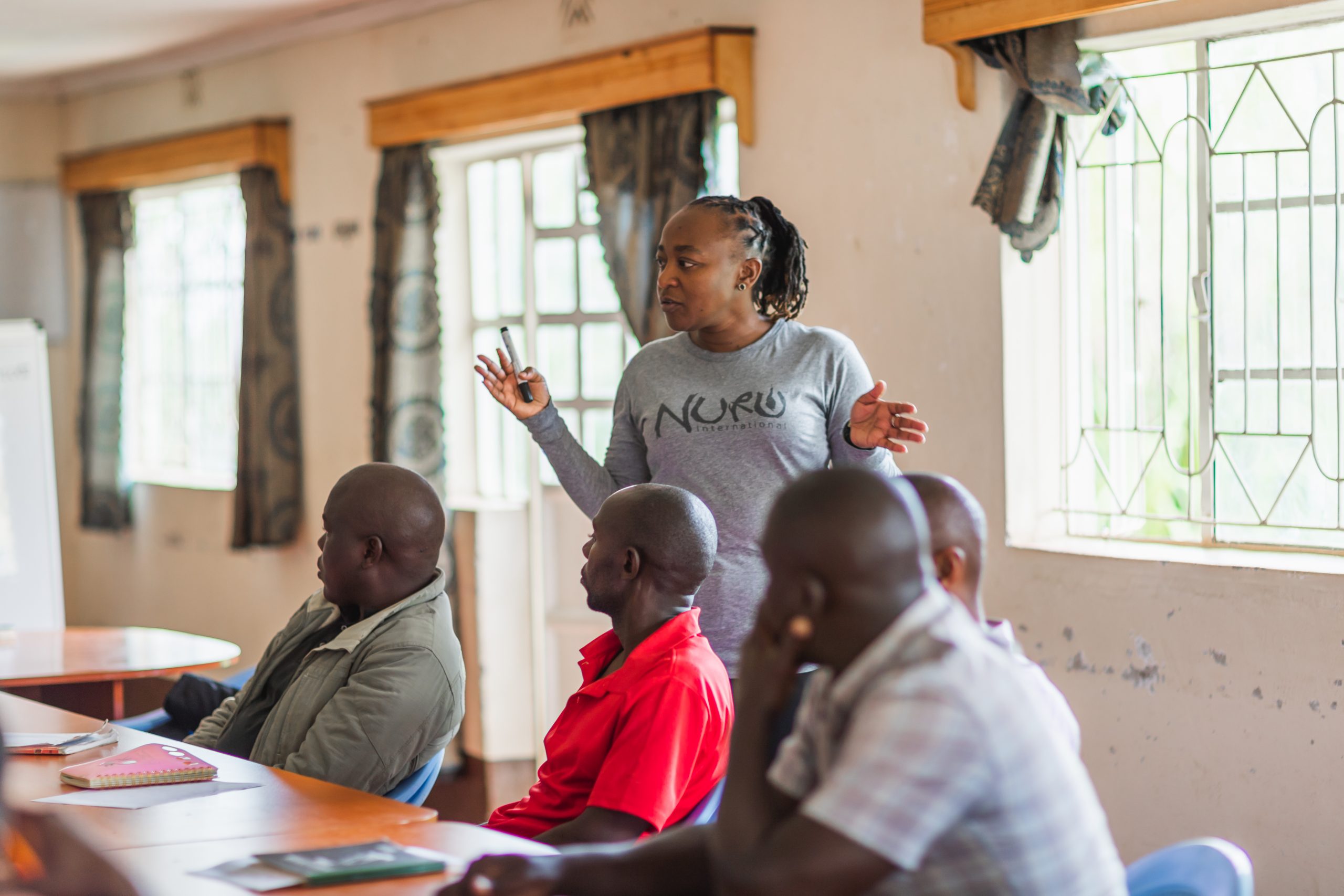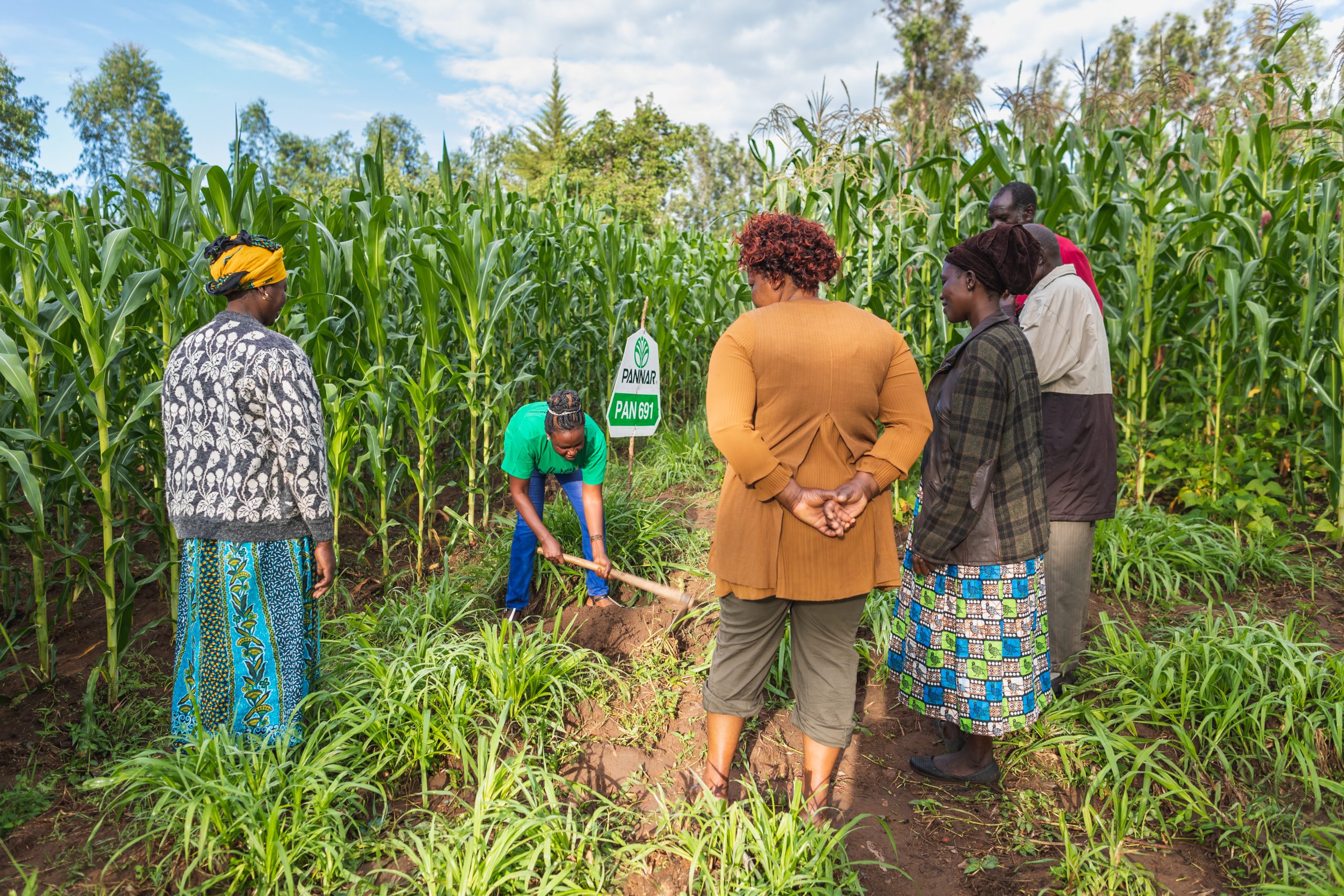On June 2, Nuru Kenya and Nuru Social Enterprises presented virtually for Humentum Africa. Humentum brings together international relief and development organizations to share best practices, learn from one another, and collaborate on larger opportunities. Nuru Kenya’s presentation focused on building sustainable business solutions amid challenges for the rural poor and was attended by 37 live participants.
Nuru Kenya Managing Director Pauline Wambeti, alongside Nuru Social Enterprises Managing Director Tom Kibet and Nuru Kenya Cooperative and Market Linkage Program Manager Fatuma A. Nyanjong, shared an overview of programming efforts in rural livelihoods, financial inclusion, and preventative healthcare, focusing on the importance of pivoting when new challenges arise.
How does Nuru Kenya work?
Nuru Kenya operates through three main structures: 1) cooperatives that provide a conducive environment for farmers to come together and market their produce as a group, allowing for better bargaining power; 2) Nuru Social Enterprises, which purchases raw milk for processing into yogurt and markets in six counties through Western Kenya, ensuring smallholder farmer can get a premium price for milk; 3) TVET (Technical and Vocational Education and Training) program: leadership and capacity building opportunities that foster better governance and include basic business and financial planning for farmers and students across the country at a subsidized rate.

Learning from Challenges
But, it’s impossible to talk about the development of Nuru Kenya without unpacking the challenges because those experiences proved necessary in making the organization what it is today. Throughout its history, Nuru Kenya has worked with local smallholder farmers to address the extensive challenges they face–providing opportunities for both the farmers and the organization to learn and develop.
“Programs have evolved, and that is because the challenges have also evolved. We evolved our solutions to the challenges.” -Pauline Wambeti
When Nuru Kenya initially launched, smallholder farmers organized into informal groups, but as time progressed, Nuru Kenya pivoted to focus on organizing into formal entities, as the groups needed legal structures that would continue to design and implement solutions to support farmers. These groups needed to be community-owned, led, and able to provide opportunities for both investment and market access; thus, Nuru supported the establishment of formal farmer-owned and led cooperatives. Nuru set up a revolving fund to negotiate discounts, show daily financial transactions, and arrange for credit through local stores. These activities helped cooperatives to build both credit and transaction histories. Nuru Kenya farmers needed to sell their surplus for additional income, and the cooperatives paved the way for these farmers to sell to schools and Nuru’s feed mill (to process animal feed).
“These things do not happen in a day. You have to be patient because change takes time. And also you have to celebrate both failure and successes.” -Tom Kibet
Migori County has been subject to extensive environmental degradation through the cultivation of tobacco, which demanded firewood and led to deforestation. To address this, Nuru helped farmers incorporate terracing, plant trees, properly dispose of chemicals, and diversify their crops. Farmers’ reliance on rain-fed agriculture also led to the diversification of crops and expansion into dairy. By making these changes, farmers were able to increase both household income and food security. These farmers have historically been unbankable, with no access to credit history. Nuru helped them organize into cooperatives and Nuru also facilitated partnerships with banks, making farmers creditworthy. Additionally, Nuru helped farmers grow in their ability to manage their cooperatives through an innovative leadership program.
Nuru Kenya’s willingness to both pivot when faced with challenges, and see failures as opportunities for growth and learning, made the organization well-positioned to adapt to the evolving challenges that have accompanied COVID-19 and other shocks.
To view the full presentation by Pauline Wambeti, Tom Kibet, and Fatuma A. Nyanjong here.


